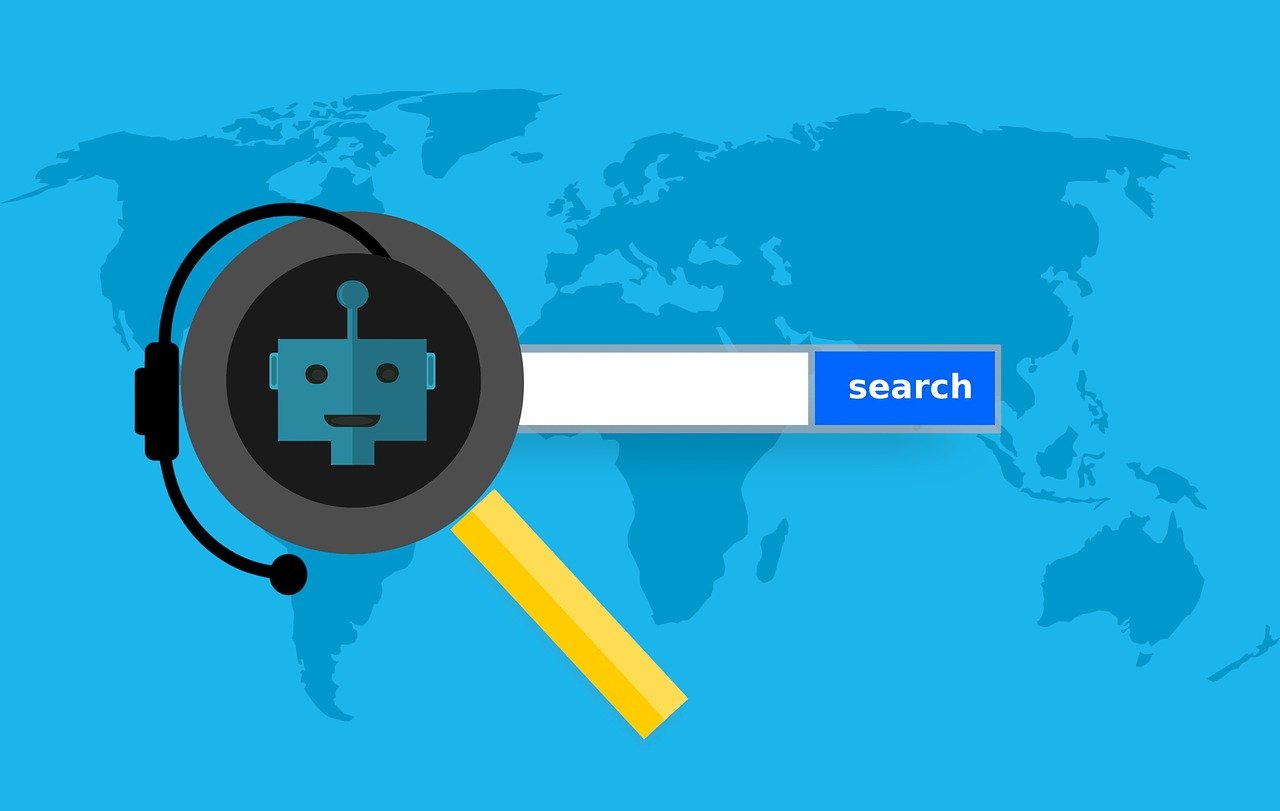
The Future of SEO AI: Competitor Analysis and How It’s Changing the Game
Traditional SEO competitor analysis has long been a painstaking process. Marketers and technical SEOs would trawl through SERPs, a process known as SERP analysis: to review backlink profiles and comb over rival websites for content ideas or technical gaps. These tasks were typically performed by SEO agency professionals and in-house teams. In 2025, the evolution of AI SEO software means this is fast becoming a thing of the past.
Why AI SEO Software Outperforms Manual Research
The best AI SEO software today blends automation and intelligent analytics. Rather than simply pulling basic ranking data, modern tools can reverse engineer top-performing competitors, map out keyword gaps, analyse backlink landscapes, assess technical SEO issues, and even track brand sentiment in Large Language Models, not just traditional search. SEO AI tools streamline various SEO tasks such as keyword research, content optimisation, and technical audits.
Key Benefits:
- Speed & Comprehensive Coverage: What used to take days can now be accomplished in minutes. AI SEO software can process data on thousands of keywords, backlinks, and traffic sources in a single dashboard. An AI writer or AI content writer can also generate or assist with content creation as part of the workflow.
- Actionable Insights: Instead of overwhelming you with raw data, leading tools surface clear recommendations, what to fix, why it matters, and exactly how to exploit a competitor’s weaknesses.
- Content Gap Identification: AI SEO software excels at helping you identify content gaps—pinpointing topics, formats, or keywords your rivals are ranking for, but you’re not. This fuels content calendars with proven, data-driven ideas.
Content Creation and Optimisation in the Age of AI
Those working in digital marketing may have already discovered, or are contemplating embracing, the transformative power of AI-powered SEO tools in their content creation efforts. Teams trapped in the endless cycle of manual keyword research and content optimisation are now finding these AI solutions extremely liberating. By integrating advanced SEO tools into your content creation process, you can efficiently conduct keyword research, pinpoint target keywords, and decode search intent (ensuring every piece of content is crafted to resonate with both users and search engines). This fundamentally reshapes how we approach content at a pace and scale that was previously unimaginable.
If you are unable to keep up with the demands of modern content creation, AI-powered SEO tools can assist in cutting through some of the bottlenecks and help you find scalable solutions. These tools streamline the entire workflow from ideation to publication, analysing vast amounts of data to suggest topics, formats, and keyword clusters that are most likely to drive engagement and improve rankings. They also provide real-time recommendations for optimising existing content (such as refining meta descriptions, enhancing internal linking structures, and updating meta tags to align with current search trends). This ensures that every article, blog post, or landing page is not only engaging but also fully optimized for search engine visibility – a not unimportant consideration if you are going to be competing all day in the digital marketplace.
There are, however, practical considerations when relying on AI for content creation. AI tools excel at identifying opportunities for content optimisation by benchmarking your content against top competitors, highlighting semantic keyword variations, and suggesting improvements for headings and structure. They even recommend updates to maintain optimised content as algorithms evolve (sadly, this is becoming an increasingly common necessity). While AI-generated content can be grammatically flawless and technically sound, it’s essential to maintain a balance with human oversight. I am frequently in awe at how AI can perform content tasks, but human writers bring nuance, creativity, and a unique brand voice that AI alone cannot replicate. The most effective content strategies combine the speed and precision of AI with the authenticity and emotional resonance of human storytelling, resulting in content that ranks well and truly connects with audiences.
Technical SEO and AI: Unlocking Deeper Insights

As search engines continue to evolve (and frankly, become more demanding), many website owners find themselves grappling with the increasingly complex world of technical SEO. If you’re struggling to keep pace with these changes, you’re certainly not alone. AI-powered SEO tools have emerged as something of a lifeline for those seeking to uncover the deeper insights that truly drive website performance. These sophisticated tools can conduct comprehensive site audits (analysing everything from your site’s underlying architecture and internal linking structure to the often-overlooked meta tags and content-gaps that may be holding you back). By processing vast amounts of data at speeds that would leave even the most dedicated SEO professional breathless, AI tools can quickly identify those technical issues, crawl errors, frustratingly slow-loading pages, or missing schema markup that may well be the culprits limiting your website’s visibility in search results.
When it comes to backlink analysis, AI-powered SEO tools truly excel (and this is where I’ve seen some of the most impressive results). They don’t simply detect those spammy or low-quality links that could potentially harm your rankings, though they certainly do that with remarkable accuracy but they also uncover high-value link building opportunities that can genuinely strengthen your site’s authority. These tools can recommend strategic improvements for page optimisation, ensuring that every single element (from those crucial meta tags to your internal linking strategy) is fine-tuned for maximum impact. I’ve found that many website owners are surprised by just how much untapped potential lies within their existing site structure.
Beyond simply addressing reactive fixes (which, let’s be honest, is where most of us spend far too much time), AI brings something genuinely transformative to technical SEO: predictive analytics. By forecasting search trends and user behavior patterns, AI-powered SEO tools enable marketers to proactively optimise their content and site structure ahead of algorithm updates or shifts in search intent. This forward-thinking approach, which I would argue is essential in today’s competitive landscape helps maintain that all-important competitive edge, ensuring your website remains both visible and relevant as search engines and user expectations continue to evolve. Ultimately, it’s about positioning yourself not just for where the search landscape is today, but where it’s heading tomorrow.
Brand Voice and Tone Consistency with AI Tools
In today’s landscape of AI-driven content creation, you may find that maintaining a consistent brand voice and tone has become more challenging than ever. However, AI tools can assist you in analysing your existing content to identify the language, style, and tone that define your brand. By working with these insights, you can ensure that all your new content, whether AI-generated or human-written aligns with your established brand voice, helping you foster trust and recognition among your audiences.
AI tools can also prove helpful in creating detailed content briefs and style guides for you, outlining the specific elements that contribute to your brand’s unique identity. This guidance can assist both your AI content generators and human writers in producing content that remains cohesive and on-brand across all your channels. While AI can replicate patterns and maintain consistency for you, it’s important to recognise that involving human editors in your content process remains crucial. Human oversight ensures that your content not only adheres to brand guidelines but also captures the subtle nuances and emotional resonance that drive audience engagement.
As your brand evolves, so too must your content strategies. You’ll find that regularly updating your AI tools and style guides to reflect changes in brand messaging ensures that your content remains fresh, relevant, and aligned with your business goals. By combining the analytical power of AI with the creativity and intuition of your human writers, you can achieve a harmonious balance between efficiency and authenticity in your content efforts.
AI Search Engines and Visibility: The New Battleground
If you’re finding yourself grappling with the rise of AI search engines, you’re certainly not alone in recognising that this shift has fundamentally transformed the SEO landscape (and arguably made visibility on these platforms absolutely critical to your modern SEO strategies). AI search engines, such as Google’s AI Overviews, are now delivering concise, contextually relevant answers directly within the search results, which means—sadly for many website owners—users often no longer feel the need to click through to individual websites. This shift, in my view, means that if you want to succeed, you’ll need to embrace a completely new approach to optimisation, one that prioritises clear, accurate, and genuinely helpful information that’s tailored specifically to what your users are actually searching for.
To navigate this new environment successfully (and I’ve seen many businesses struggle with this transition), you’ll need to leverage AI SEO tools to analyze how your content is actually performing in these AI-driven search results. This involves structuring your content in a way that can be easily understood and summarized by AI algorithms, using schema markup, concise headings, and well-organised information that doesn’t leave the algorithms guessing. Technical SEO remains absolutely foundational here (though many overlook this), as AI search engines invariably favour websites that are fast, secure, and mobile-friendly, the basics, if you will.
Content quality is equally important, and I would argue it’s become even more critical than before. AI search engines are increasingly rewarding content that provides unique insights, answers questions directly, and delivers genuine value to your users (rather than the keyword-stuffed content that might have worked in the past). By focusing on both technical excellence and high-quality content creation, you’ll significantly improve your chances of being featured in those coveted AI-generated answers and summaries that users are now relying on.
Ultimately, the interplay between AI, SEO, and content is undoubtedly shaping what I believe will be a completely new era of search engine optimisation. If you’re a marketer who can adapt your SEO strategies to embrace AI-powered tools, optimise specifically for AI search engines, and maintain a strong brand voice throughout this transition, you’ll be best positioned to enhance your online visibility, attract more meaningful traffic, and achieve the kind of lasting digital success that’s becoming increasingly challenging to secure in this evolving landscape.
What Top AI SEO Software Offers for Keyword Research in 2025

1. Holistic Data Integration
Platforms today centralise organic, paid, and even social analysis, acting as a comprehensive SEO platform, seo tool, or ai tool. They integrate rank tracking, top ranking pages, word count, and support for local seo, providing a unified view for seo agencies and in-house teams. These solutions also centralize seo data from sources like Google Search Console, enabling seamless analysis for both general and specialized areas. No more guessing, AI shows you where your website’s authority lags or where rivals’ meta titles outperform yours.
2. Content Quality & Strategy Evaluation
AI-powered content auditors benchmark your content against top-ranking competitors and top ranking pages. These tools evaluate everything from keyword density, keyword clustering, keyword analysis, keyword data, meta description, target keyword, and structure to topical authority and freshness. They also assess long form content, content generation, creating content, generate content, and search optimization, ensuring you’re always a step ahead, even as algorithms evolve. The landscape includes ai seo tool and other ai seo tools, making it essential to compare features and outputs.
3. LLM & AI Search Monitoring
This year’s frontier is not just ranking in blue links, but visibility within AI-powered answer engines. New tools now let you monitor how often your brand is cited in AI-generated responses, including ai answers, ai search results, and google’s ai overviews, versus competitors. They also track search queries, website’s visibility, and performance across other search engines. Monitoring the rise of “AI SEO Software” as a search topic and focusing on generative engine optimisation keeps you at the forefront.
4. Automated Technical SEO Fixes
AI SEO software now does more than spot technical issues like missing tags or slow load times. Increasingly, these solutions automate recommendations, generate schema, and build internal links, all at scale to match or outpace competitors. Automated features now include seo audit, technical seo audits, on page optimisation, and leverage data from Google Search Console and other sources to enhance seo data and maximise seo efforts.
Quick Reference Table
- Ahrefs: Includes ahrefs ai content helper
- MarketMuse: Focus on content generation
- Surfer SEO: Strong on on page optimization
- Alli AI: Tailored for seo agencies
- Semrush: Integrates with google search, google docs, and other seo tools
The Competitive Edge: AI SEO Software Use Cases
- Keyword & Content Gap Analysis: Instantly reveal gaps in your coverage compared to competitors, prioritising the most winnable topics and traffic opportunities.
- Backlink Analysis: AI pinpoints not just who is linking to your competitors, but which links actually move the needle, helping to focus your outreach on high-value domains.
- SERP & Feature Monitoring: Discover which competitors hold coveted featured snippets or other features, so you can design an actionable strategy to outrank them.
- AI Content Briefs & Optimization: New tools generate comprehensive, SEO-ready briefs and even schema markup for new articles, massively reducing the manual effort required and ensuring gap-filling content. These tools help you create content that is optimised for search intent and AI visibility. They also support optimising content for voice search, AI-generated responses, and multimodal formats, increasing your chances of being cited or featured in AI search results.
Choosing the Right AI SEO Software and SEO Tools for Competitor Analysis

Not all tools are made equal. The best AI SEO software in 2025 offers:
- Advanced NLP and deep learning for interpreting and recommending strategies
- Robust integration with site analytics and workflows
- Transparent pricing, responsive support (including access to an SEO expert or expert guidance), and ongoing development
- Specialised features for technical audits, content briefs, backlink intelligence, and AI-powered search visibility
Quick Reference Table:
| Tool | Key Strengths | Best For |
|---|---|---|
| Semrush | AI keyword/content gap, AI search monitoring | All-in-one competitor analysis |
| Ahrefs | Deep backlink & content gap intelligence | Enterprise/agency SEO teams |
| MarketMuse | AI-powered content optimisation & briefs | Content marketers, in-house teams |
| Surfer SEO | On-page and SERP feature analysis | Writers, freelancers, technical SEO |
| Alli AI | Technical fixes, schema, internal linking | Agencies, website managers |
The Bottom Line: AI SEO Software is Now Essential
AI SEO software is rapidly shifting from a “nice-to-have” to an essential part of the competitive SEO toolkit. The most advanced solutions blend data, automation, and actionable intelligence for rapid, ongoing competitor monitoring and strategic action. In 2025 and beyond, it’s how you stay one step ahead—not just on Google, but in every evolving digital platform where customers discover your brand.



